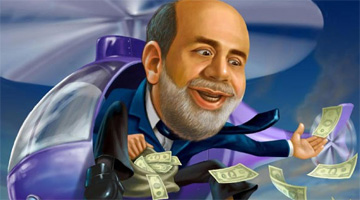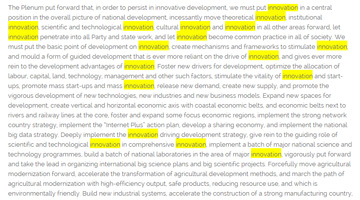|
| |
|
| |
|
|







|
|
TCHS 4O 2000 [4o's nonsense] alvinny [2] - csq - edchong jenming - joseph - law meepok - mingqi - pea pengkian [2] - qwergopot - woof xinghao - zhengyu HCJC 01S60 [understated sixzero] andy - edwin - jack jiaqi - peter - rex serena SAF 21SA khenghui - jiaming - jinrui [2] ritchie - vicknesh - zhenhao Others Lwei [2] - shaowei - website links - Alien Loves Predator BloggerSG Cute Overload! Cyanide and Happiness Daily Bunny Hamleto Hattrick Magic: The Gathering The Onion The Order of the Stick Perry Bible Fellowship PvP Online Soccernet Sluggy Freelance The Students' Sketchpad Talk Rock Talking Cock.com Tom the Dancing Bug Wikipedia Wulffmorgenthaler |
|
bert's blog v1.21 Powered by glolg Programmed with Perl 5.6.1 on Apache/1.3.27 (Red Hat Linux) best viewed at 1024 x 768 resolution on Internet Explorer 6.0+ or Mozilla Firefox 1.5+ entry views: 1779 today's page views: 49 (2 mobile) all-time page views: 3400768 most viewed entry: 18739 views most commented entry: 14 comments number of entries: 1228 page created Sun Jul 13, 2025 01:42:06 |
|
- tagcloud - academics [70] art [8] changelog [49] current events [36] cute stuff [12] gaming [11] music [8] outings [16] philosophy [10] poetry [4] programming [15] rants [5] reviews [8] sport [37] travel [19] work [3] miscellaneous [75] |
|
- category tags - academics art changelog current events cute stuff gaming miscellaneous music outings philosophy poetry programming rants reviews sport travel work tags in total: 386 |

| ||
|
and sleeps in the rest of humanity." - Peter Altenberg, in Bohemian Manifesto Mr. Ham: Aw, crap! The human's back! Uh, avoid that room for a while, human. No, no particular reason. So, uhm, how was your festive weekend? Me: Caught Star Wars, for one. And had some mookata at Golden Mile. So, what's it with the room?  Mookata Double Egg Special Mr. Ham: How about we talk about Star Wars instead? Me: If you must. Maybe this could be a bit spoilery... but then the movie was never going to win awards for originality. So, a few decades after being defeated by a bunch of homeless care bears, the Evil Empire's R&D department comes up with Death Star 3.0, which is able to drain suns of the entirety of their energy, and channel it to exterminate entire star systems. Mr. Ham: So those green energy grants worked, after all. Me: Continuing, this is a galactic saga in which the godlike foremost magic expert of the age disappears without leaving a forwarding address... only for a retrofitted Jabulani football to acquire a map of his whereabouts. The football then teams up with a karang guni bag lady and a runaway toilet cleaner, who chance upon a pair of has-been drug couriers turned exotic pet smugglers. They infiltrate Death Star 3.0 while the management rehearses their full-costume Nuremberg reenactment, having identified its only weak point as located behind the washrooms that the toilet cleaner used to unclog. Our trigger-happy semi-retired smuggler then informs the designated Bad Guy of the instalment that He Is His Father, doubtless compelled by eldritch narrative forces. Mr. Bad Guy happens to be an emo pastiche of Severus Snape and Christian Grey with severe anger management issues, in a nod towards commercial viability. Severus Grey barely manages to get over his disconcerting Uncle Anakin helmet fetish for long enough to skewer Dad with his flashy modded lightsaber, which probably cost him several weeks' wages from his part-time cashier job at Hot Topic to bling up. Which is probably just as well, since his army of reimagined futuristic PAP cadre cosplayers had already demonstrated a complete inability to hit a barn wall at anything more than point-blank range, which would at least have spared viewers from sitting through this plagiarized chop job of Episodes IV through VI. As it is, Katniss Karangguni flees with Janitor Joe, only to be intercepted by a half-dead Severus Grey. Even then, he was definitely capable of simply force-pushing Karangguni over a cliff or something, but evidently decided that the audience hadn't been tortured enough yet. So Sith! Doing the man thing, Janitor Joe gamely engages Severus Grey in obligatory lightsaber combat, and is summarily defeated, to the incandescent indignation of #blacklivesmatter participants. They descend upon Death Star 3.0 in X-Wings and smash the place up. Mary Sue Katniss Karangguni then invokes her right as the protagonist to defeat her completely winded Vader fanboy adversary, who however is preserved for the sequel by deus ex machina terrain deformation. Death Star 3.0 goes boom. It is not the Galactic Empire's finest hour. Back at home base, Jabulani football finally manages to connect to Google Maps with the help of a tech support droid. Katniss Karangguni, whom some now suspect by her superhuman feats to be the secret love child of Padme Amidala and Jar Jar Binks, duly hitches a ride to Master Skywalker's vacation hideaway, having being promoted to Lost & Found office delivery girl for her part in saving the known universe. The movie then abruptly cuts off here, by the looks of it due to the producers having run out of film reel.  Patience, my little onesss. They's mocked me. How they will suffer... (Source: push-it-art.deviantart.com) Mr. Ham: Not a fan of the flick, I daresay? Me: Meh, it's become a pop-culture coming-of-age ritual by now. I was pretty surprised to learn that the headlining action girl will make less than half a million, compared to Harrison Ford's US$25 million for not even making it through. But then, Daisy Ridley does have other perks to look forward to, if Carrie Fisher's experience is anything to go by. Mr. Ham: *lights cigar* I suppose I'll wait for it to come out on Netflix, then. Doesn't seem like it'll be much of a change from the comedy that passes for politics nowadays. Have you heard, another cat has been elected as mayor! Blasted bandwagon followers! I bet they're already currying favour with President Trump in the States! Mr. Robo: *twiddling with transistors* Not much we can do about that. And, hey, Mr. Ham, I heard that you don't mind cats, in any case. Under the influence, yes, but really it's nothing to be ashamed of. Progressive thought's ok. Mr. Ham: ...Excuse me. *waddles over* Mr. Robo, I think you missed soldering that one. *brains Mr. Robo with a mallet* Me: And what did you do that for?! Mr. Ham: I got a reputation to keep up, human. Don't worry, he'll wake up fresh as a daisy, if with some inappropriate memories excised. Me: That seemed a pretty blunt instrument... Mr. Ham: Oh, repeated application gets the job done. It's a fine art. But don't mind me, if I remember right, you've got a number of reviews to wrap up pronto... Freestyle Notes (Part III)  It's not working, cap'n! They're shrugging it off! (Source: davidstockmanscontracorner.com) Since I don't think I will be spending too long on Abdelnour's Economic Warfare, I'll go through it first. Given that the book has a foreword by 999 Herman Cain, who is soon tributed by a reference to "CAIN-sian" economics, and that the author claims Carlos Slim, Michael Milken (hmm), Hayek, Friedman, Reagan and Ron/Rand Paul as his other heroes, it doesn't take much to figure that the book may provide an invaluable insight into the intricacies of Republican-brand economic theory. To begin with, the open acknowledgement of convicted inside-trading junk bond king Milken came off as odd, if brave. The mystery is revealed in the middle, when Abdelnour praises the "Drexel DNA", feting the disgraced investment firm as "having a certain chutzpah that hasn't been seen since", which one supposes is spot-on if one replaces "chutzpah" with another word beginning with "ch". Oh, he's a former Drexel salesman. The rest of Abdelnour's book might or might not make more sense when examined through this lens, given that he spends much of it railing against... Wall Street banks such as Goldman Sachs pumping up subprime mortgages and creating the 2007 financial crisis. Which is materially distinct from junk bonds how exactly, I am pressed to describe. Ah, I see, Abdelnour's Blackhawk Partners - one of the many successors to Drexel - is a people business, not a dollars and cents business. That explains everything. In the interest of completeness, it should be said here that Abdelnour got slapped with a five-year ban from the securities industry a year after this book came out. I'll just clear through the ideology first. The Federal Reserve is illegitimate, federal debt is a rip-off (unlike junk bonds), welfare acts against economic self-interest, Obamacare is 1917s Russian socialism, Progressives composed of Democrats and moderate Republicans have hijacked the government, the Koch Brothers are saints of classic liberalism, and global banksters (those who sell CDOs only, and not the honourable junk bond traders, it goes without saying) should admit fault, and stop formenting unrest and global conflict. One also cannot help but discern a hatred for Goldman Sachs, which I'd guess stems from them managing to get away with it, unlike Drexel - which Abdelnour does indeed complain "was the only major financial firm shut down by regulators". But fine, the guy actually does have some good advice, such as converting US-backed assets into Swiss francs, kroners, and other "strong currencies"... oops, that wasn't it. Next hot tip: hide money offshore in Hong Kong and Panama, out of the reach of the IRS, with the help of nice private bankers like yours truly (really). Personally, I'm not sure if it's a great idea to publish that. Tends to hit the discretion ratings. Okay, okay, some of it does actually resonate:
Mr. Ham: Hey, the book's got a 4.8 star rating on Amazon from over a hundred reviews, so the guy has got to be doing something right. It's given me some new ideas, in fact. Me: We'll talk about that later. It might be worth noting that junk bonds are imploding again, before you get anything smart going on. I'd rather you expend your efforts on digesting the implications of the Fed's raising of interest rates, as the New York Times succintly explains by Rube Goldberg: My own take on Fed hikes and the prevailing Republico-Protestant work-ethic economics is that central bank policymakers should seriously consider the impact of automation in expected responses to capital injections - or at least, more seriously than their actions seem to indicate. Very simply put, the slashing of rates to the bone in recent years was supposed to stimulate the economy by incentivizing debt and real investment... which worked less well than hoped, as people continued stashing their dollars away anyway. One thing that Abdelnour did get right was that rational agents are in it to make money - if they can get away with paying workers a lower-than-living wage, why should they bother to do otherwise? This seems to be taking time to sink in, but it appears extremely likely to me that the future is, increasingly, "patronage" jobs, with a shrinking-by-proportion core of innovators fed by a consolidating class of capitalists, with the rest fighting for niche prestige postings in entertainment and the arts, leaving the vast majority to subsist on make-work. While I remain utterly unconvinced that anything close to true general artificial intelligence is anywhere near, I am also quite certain that there are only too many sectors of the economy in which "good-enough" A.I. would be severely disruptive. Taking long-haul truckers as an example - some are dismissive of self-driving trucks by pointing out that driving is only part of the job scope... but to me it seems almost obvious that technologically, it's mostly a matter of installing the full stack of operations and sidestepping the harder human judgments. Given that many truckers ferry shipping containers around, the analogy is almost ready-made - one could imagine coolies and longshoremen scoffing at the thought that their work could be mechanized, as late as the 1950s. Could you even imagine robots balancing their way up and down rickety planks, while adjusting for hundreds of types of loads and cargo hold layouts? This was the very representation of a secure semi-skilled blue-collar job for honest working men! Of course, this was also entirely the wrong way of approaching the problem. Robots didn't actually need to know about odd-shaped packages, they merely had to handle standard-sized containers. Well, somebody still has to load those containers, you say? Oh, warehouses got reconfigured to deal with pallets, and they now only need a few forklift drivers... but, but, somebody has to load the pallets..? Turns out, factories are integrating the pallets into their assembly lines. Bye, job. But, can your *clever self-driving truck* do this (see 5:00), huh, huh? [N.B. This shows matters coming to a head at Calais, where truck drivers are engaged in a continuous struggle against migrants trying to sneak on board and cross over to England. More on human migration soon.] Mr. Ham: Short comment on Singapore here. As the incumbents push for a "car-lite" country, which does make some sense, the new kana-arrowed Transport Minister has seen the writing on the wall, and has already begun to cover his ass for the inevitable breakdowns. Mind, this is after pulling out the big guns, so I'd say it's GG. Me: Going back, I'd say that economics should start earnestly examining what to do when most of the population is truly economically extraneous - which may already be the case. This may necessitate a shift in mindset from "you're poor because you're lazy" - which, to be certain, is sometimes the case - to "you're poor because, honestly, there's now nothing necessary that you can do better than the machines". On to China. Officials in the northeast have recently confessed to overstating revenue and GDP figures for years, which should surprise nobody with half a functional brain, really. Put simply, just because you can produce a hundred thousand tons of steel, doesn't mean that it must be a good idea... which the CCP should well understand, of all people. I can't even find myself blaming those officials too much, since they were probably just toeing the party line. Yes, it is true that expectations do shape reality, but there's obviously also a limit beyond which it backfires. I mean, if just saying that you have 7% growth would guarantee continued prosperity, I'd have nothing against it. Heck, why not go for a round 10%? The problem - well covered in history books - comes when further plans are built on embellished figures. Actually, stating 7% when you've 4% may not matter much if at all in the short term - in fact, everyone just gets a slightly bigger bonus. But the 7% will then be used in a whole shaft of other projections, from lending rates to predicted turnover... which can all go bad rather quickly indeed. Restless Empire notes a resistance to Western-style double-entry bookkeeping in developing China and pre-independence Singapore, due to the lack of a column for cultivating guanxi. Yes, it's true that actual agents will learn to "adjust" the official figures, but the classic historical outcome is that of relentless second-guessing, eventually to the extent of utter ridiculousness. As Kenez writes in his history of the Soviet Union, "...the problem was not that the Statistical Bureau made up figures. It was that as each agency reported to a higher level, the figures were padded..." Well, as expounded on last year, the Chinese government looks close to resorting to transplanting many tens of millions of rural inhabitants to their more ghostly cities, which however will also, again as explained, impose a general realignment of property prices from wholly theoretical to more practical levels, i.e. what new peasant farmers can actually pay. In the longer term, the Party is Wise:  I guess they're big on innovation now, I shit you not. (Source: chinacopyrightandmedia.wordpress.com) With GDP growth proving less amenable to slogan-chanting than before, the Fifth Plenary Meeting of the 18th Central Committee has staked their bets on innovation, because if you repeat it often enough, the Will of the Han will make it come true. Seeing as this came shortly before our DPM said to "...work cluster by cluster to get innovation chains... have collective innovation in each supply chain, industry by industry", it is a fair call that the Sino-Sin Asian-valued brotherhood of leaders has been lunching together. In 100% irrelevant other news, our winner of a naming competition for a mall in Sengkang is... Sengkang Mall. Locals reportedly could barely manage a wry smile. One interesting tidbit from Restless Empire is that the CCP political leadership remains drawn exclusively from domestic universities, because overseas scholars might, you know, have new ideas. Ownself check ownself agrees. Interestingly, Singapore appears the only country outside China where Chinese became the majority population; still, it took LKY's self-abasement before Deng for the People's Daily to stop referring to Singapore as a running dog of the Americans, which I guess counts as successfully building guanxi. Mr. Ham: Chipping in on Fed rate predictions. The median expectation from fifty-one top economists polled by Financial Times is 1.375% in 2016, 2.375% in 2017, 3.25% in 2018 and 3.5% long-term. Let it be on the record that H.L. Ham's team of analysts project half those figures at a maximum. Me: Bringing the environment in, as we hardly want to drag this too much - although the worst air pollution is to be found in Indian cities, rather than the far more publicized Beijing, even CCP catchphrase-repeaters have realised that There Is A Problem, if only due to breathing it. Just as well, then, that the nations of the world agreed in Paris a couple of weeks ago to cut down on carbon dioxide emissions, eh?  Comrade, it may be smog; but it is *glorious* Communist smog! (Source: chineseposters.net) Before going overboard about the fist-pumping and back-slapping, though, it might be considered that there are next to no actionable penalties, and it's essentially merely nice-sounding promises. And, using the Kyoto Protocol as a backdrop, one has to observe that USA! never even bothered to ratify it, while Canada withdrew (sorry, eh) once they realised that they had to pay up for not meeting targets. As with man-made famines, one realises that the problem simply comes back to one of money. Unfortunately, the thing about climate change is that not only do the effects take place over decades, and unevenly at that, the consequences are socialized, while the benefits from ignorance are privatised. If lessons from the financial sector are any indicator, the dominant response will be: "deny everything/do nothing". I don't want to be too cynical, but to the inhabitants of low-lying Pacific islands... you all might want to look at some real estate brochures and save for a second mortgage sometime. Well, after reading Jared Diamond's Collapse, my feeling is that the human race as a whole will almost certainly survive climate disasters... if individual societies might not. One eyebrow-raising sentiment sometimes heard among Rwandan survivors, according to his sources, is that "war is necessary to wipe out an excess of population and to bring numbers into line with the available land resources". There is a suggestion that the Hutu/Tutsi ethnic conflict might actually be a cover for more fundamental land and resource grabs. The unifying theme of Collapse is indeed that of the natural environment making or breaking societies. While the last third of the book concentrates on modern societies (including Rwanda and, of course, China), it is the more-dated stories which are to me the more compelling, if only because they have largely come to conclusions. Before continuing, it should be stated that Diamond warns against both over-demonizing and over-romanticizing indigenous peoples. Reality tends to lie somewhere in between the images of brutal savages, and gentle flower children. The ancient case-studies begin with Easter Island of the Giant Stone Heads, which happens to be over 2000km from the nearest inhabited land, Pitcairn Island - which is itself, well, not very happening (but it does have Internet access!)  We need to talk about this "yellow fever" epidemic I'm hearing. (Source: fanpop.com) The Polynesian settlers who managed to get there probably deserved a prize for that alone, but then outdid themselves by carving huge statues and plonking lava rock hats on them, which Diamond suspects operates on a similar concept to placing long antennas on skyscrapers to win tallest building awards. Long story short, they thrived until maybe the 1400s, after which near-total deforestation resulted in the loss of most of their wild food sources, as there was no more wood for new canoes. Mr. Ham: Just a reminder, it's getting late. Me: True that. Okay, if you want to know what happened to the Pitcairn Islanders, the Anasazi Native Americans pre-colonist genociding, and the Maya, you know where to check the book out. This leaves us with the story of the Norse in Greenland, which is the centerpiece of Collapse. Which boils down to: the Norse Vikings didn't adapt properly and tried to transplant their cattle homesteading practices from their homeland, and died out once long-term temperatures fell and their cows bought the farm (hint, hint) In direct contrast, the Inuit - more commonly known as the Eskimo - were far more flexible, hunting the more prevalent whales and fish, which the Norse apparently refused to for some reason. Faced with the lack of wood, they developed igloos for homes, and sealskin kayaks. Presumably, had the Norse picked up some of these innovations, they could well have survived. Not unexpectedly, they instead dismissed the Inuit as "skræling" (it should be evident by now that everybody is everyone else's barbarian) in the manner of European colonists towards Native Americans (and vice-versa), and any interactions were mostly hostile. For once, however, the Europeans drew the short end of the stick. Digressing a bit, it is easy to suspect the Inuit of having Asiatic origins from facial features, which does seem the case, while the Polynesians most probably migrated out of Taiwan several thousand years ago - but don't tell China, or next thing you know, they'll be claiming the entire Pacific Ocean. That said, the claim that "同姓五百年前是一家" only gains the more meaning, as one traces the sweep of human migration. We all, after all, look upon the same sun; some things never really change It is perhaps natural to be filled with melancholy learning about long-passed cultures, for as Donne wrote, "any man's death diminishes me"; it is then also heartening to realise that very few lineages truly go extinct. Taking the Neanderthals for instance, current evidence has it that Europeans and Asians retain a few percent of their DNA, and the Neanderthals might have been more technologically advanced in certain respects. And not forgetting the Beothuk, an indigenous people of Newfoundland and the original "Red Indians", who were not helped in their contacts with the European arrivals by the concept of "private property" being alien (as covered by Graeber). Although their culture is almost certainly lost, it is not unlikely that the blood remains, possibly as far afield as Iceland and Australia, which has its own share of lost tribe tales. One has to love happy endings, no? Mr. Ham: Yeah, yeah, spare me, it's closing time. Me: Wait, last one, Bohemian Manifesto. A beautifully-illustrated hipster handbook if ever there was one. The author describes the Nouveau, Gypsy, Beat, Zen and Dandy subclasses... but eh, come to think of it, this isn't quite a lifestyle one picks up from a how-to guide. But, after sampling raki, a touch of absinthe wouldn't go amiss...  (Source: The Dreaming #41) Next: The Third H.L. Ham AGM
|
|||||||
 Copyright © 2006-2025 GLYS. All Rights Reserved. |
|||||||